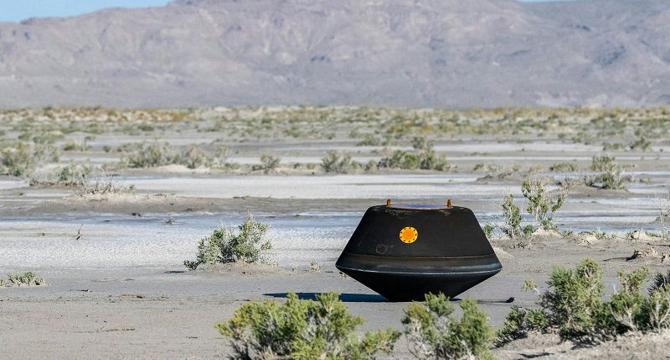Knowridge
4d
150

Image Credit: Knowridge
Why collect asteroid samples?
- China's Tianwen-2 mission is set to launch this month to retrieve asteroid samples from Kamoʻoalewa, following successful missions by the U.S. and Japan in studying asteroid samples on Earth.
- Asteroid sample return missions are crucial for scientists as they provide physical samples for in-depth analysis using various tools like CT scans and electron microscopes.
- The collection process and analysis of asteroid samples offer new scientific insights in understanding asteroid compositions and histories.
- Japan's Hayabusa2 mission targeted carbon-rich asteroid Ryugu, revealing insights about its composition through the sample collection process.
- NASA's OSIRIS-REx mission returned samples from Bennu, allowing scientists to study the capsule's reentry through networked instruments, aiding in atmospheric studies.
- Researchers discovered water-rich clay and evaporite minerals in the Bennu sample, suggesting a wet and muddy past for the asteroid, potentially harboring organic molecules.
- Asteroid mining missions like NASA's Psyche mission aim to explore metallic asteroids for valuable metals, offering insights into Earth's core and commercial interests in space.
- Psyche mission lays groundwork for understanding the metals present in asteroids, paving the way for potential future commercial asteroid mining operations.
- Asteroid sample return missions serve as a bridge between scientific exploration and potential commercial endeavors in space.
- While asteroid mining remains a concept, missions like Psyche provide valuable data on asteroid compositions and formations for future endeavors.
- These missions highlight the significance of asteroid samples in unraveling cosmic mysteries and laying the foundation for future space exploration.
Read Full Article
9 Likes
For uninterrupted reading, download the app